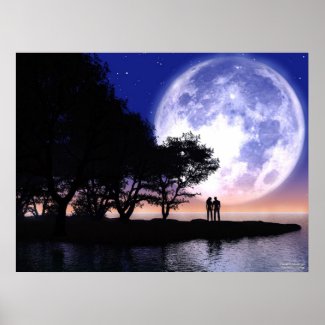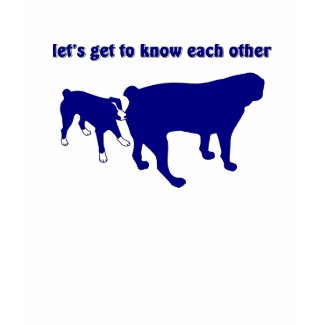After the wedding bells have rung, the cake has been eaten, and the celebratory rice has been swept up, tradition dictates that it’s honeymoon time for the happy couple. But why do people go on honeymoons? What is the origin of the honeymoon tradition? And why is it called a “honeymoon”?

Why do People go On Honeymoons?
The modern reasons for going on a honeymoon may differ slightly from earlier in history and the meaning of honeymoon back then. However, there are also enough similarities to enable us to fit both old and new meanings of the honeymoon onto one list.
1.) To Celebrate Your Marriage
Many people today see honeymoons as the grand finale to the wedding celebrations. It is so ingrained in many Western cultures that the honeymoon is almost as much a part of the wedding as wearing a white dress and exchanging rings.
Considering the amount of thought, effort and eleborate preparation that go into wedding planning these days, sometimes the honeymoon is a much needed holiday from all the stress of the lead-up to the big day!
2.) To Enable Togetherness
Having time away from the distractions and interruptions of everyday life enables newly weds to connect and enjoy each others’ company, and therefore to start married life together on the best possible note. Their seclusion together sets up the optimal conditions for intimacy and romance.
Depending on personal preference, it may be an opportunity to luxuriously rest and relax together, to explore the world together or seek out adventure together. No matter what a couple’s personal preference is, “togetherness” is the underlying theme of the honeymoon, and hopefully it will be a sweet togetherness.
Some say that the origin of the term honeymoon reflects the fact that for the first “moon” (i.e. lunar cycle, i.e. month) of married life, everything feels as sweet as honey, tender, pleasurable and love-filled.
Where does this term come from? Aside from John Heywood who used the phrase “hony moone” for the first time in 1546 (in the text A Dialogue Conteinyng The Nomber In Effect Of All The Prouerbes In The Englishe Tongue), Richard Huloet was the first to give us any form of information about honeymoons in the 1552 text Abcedarium Anglico-Latinum. This text holds a slightly cynical note, saying that marriage is like a honeymoon, which may be sweet for the initial month, but just as the moon waxes and wanes, so too does the sweetness of married life. Because these are the earliest textual references we have for the concept of a honeymoon, it is likely to have been derived from England, and later spread around the world. The term arose in other languages far later. For example it was first seen in French (lune de miel ) in Voltaire’s play Zadig
in 1747. Many languages call this post-marriage time the honeymoon:
- English: Honeymoon
- French: lune de miel
- Spanish: luna de miel
- Portuguese: lua de mel
- Italian: luna di miele
- Welsh: mis mêl (honey month)
- Polish: miesiąc miodowy
- Russian: Медовый месяц
- Arabic: shahr el ‘assal
- Greek: μήνας του μέλιτος
- Hebrew: yerach d’vash
- Persian: ماه عسل mah e asal
- Turkish: balayı
- Hungarian: mézeshetek (honey weeks)
3.) It says so in the Bible!
In Deuteronomy 24:5 it is written that “When a man is newly wed, he need not go out on a military expedition, nor shall any public duty be imposed on him. He shall be exempt for one year for the sake of her family, to bring joy to the wife he has married.”
The honeymoon tradition usually doesn’t last a full year. The term honeymoon suggests it would have lasted one lunar month. Nevertheless, the honeymoon tradition may partly be inspired by, or at the very least is least supported by this Biblical passage.
4.) In Cases of Arranged Marriages it Enables Time to Get to Know One Another
Arranged marriages or marriages by capture were once far more common than they are today. Spending time together after getting married was ideal for finding out more about your partner, and it provided an opportunity to acclimate to life together.
Today, arranged marriages are still carried out by some cultures, and for them, the honeymoon experience still serves this purpose of getting to know one another in a relaxed environment away from the hustle and bustle of everyday life, hopefully in a beautiful and romantic setting to better-enable love to blossom.
5.) To Visit Family Abroad Who Couldn’t Come to the Wedding
In the past people didn’t travel very far for their honeymoon. Because travelling was so expensive, it was mostly for the very wealthy. Those who were well-off enough to travel often took the opportunity of their honeymoon to visit those relatives who were unable to come to the wedding.
Around the 1820′s it became more common to travel on your honeymoon; So much so that the French began calling this British-derived habit of travelling after the wedding “voyage a la facon anglaise “, i.e. the English-style voyage. It is thought that the British were inspired to use the post-wedding time to travel by a concept borrowed from the Indian elite in the Indian Subcontinent.
6.) It’s the ideal time to try for a baby!
Thinking of the month after the wedding as “baby-making time” comes from two of the slightly more questionable theories behind the origins of the term “honeymoon”.
Questionable Theory 1:
Some suggest that the term honeymoon is based on an ancient practice of drinking a fermented honey liquor, similar to mead or metheglin, every day for a month after the wedding, to increase fertility. Not only was honey thought to increase fertility, but some believed honey had aphrodisiac properties AND increased the chances of obtaining a male heir.*
Some say this tradition arose in the ancient Teutons and the Babylonians, and others say it arose in Northern Europe.
Whilst this makes a good story for the origin of the term honeymoon, the fact that the first textual reference for this term comes from the 1500s casts doubt on whether the origins of this tradition could really be more ancient than this. Having said that, honey has been believed to boost fertility throughout history, possibly dating back to Ancient Greece or even earlier, so although many etymologists cast this theory aside as folk etymology, part of me still thinks that perhaps this theory may still be a contender for where the term honeymoon originates.
*(Incidentally, if you’re wondering if honey really has these great properties of boosting fertility, I sadly couldn’t find any evidence in my research that honey would boost fertility, other than the fact that it gives an energy boost from the quick-release sugar which may be relevant to temporarily increasing drive in this department. As a nutitionist, I wouldn’t recommend this though because quick-release sugars aren’t great for health in general.)
Questionable Theory 2:
I have mentioned that marriages of capture were once more prevalent than they are today. Some folk etymology, such as that written in Charles’ Pantati’s book “The Extraordinary Origins of Popular Things“, suggests that the term honeymoon arose from the Norse word “hjunottsmanathr”, which means “in hiding” and describes the time after the abduction and capture of a new bride. In the month following her abduction, her new husband would take her into hiding and try to get her pregnant within the first month, to seal the marriage and make it irreversible, so that she would be his and therefore be unreclaimable by anyone else. Other sources suggest that getting pregnant wasn’t necessarily the prime intention of this time, but that the abductor simply stayed in hiding until the bride’s family ceased their search for her, and the anger directed at him and thus the danger for his life, waned.
Many etymologists cast doubt on the validity of this theory, mostly because of the mismatch of time between the first textual record of the word honeymoon in 1546, and the suggested time when Hjunttomanathr would have been practised, centuries earlier. But it does make a good tale!
Related articles
See other articles in the etymology and culture categories including:
- Why do we celebrate Valentine’s Day?
- Why do we have the engagement and wedding ring custom?
- Love (tennis): Why do I say “love” instead of “zero” in tennis?
- OK: Why do I say “OK”? What does OK stand for?
- Holding hands: Why do romantic couples hold hands?
Related products
Note:
This site is working in affiliation with Amazon.com (for USA visitors) and Zazzle. If you like a product that was recommended anywhere on this website, please consider buying these products via the links on this site, to help keep this website running. Thanks ![]()










Thanks for that awesome posting
i love it!
This is exactly what I was looking for. Thanks for writing!
This was useful to me. Thanks!